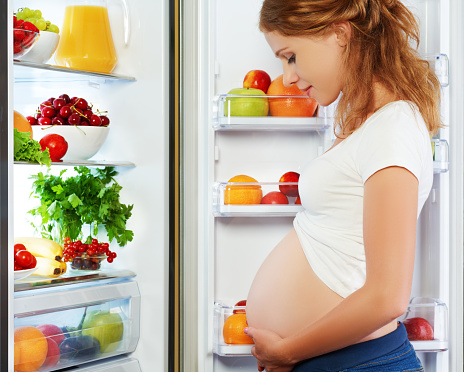
A healthy diet for mums-to-be
Are you expecting a baby? We have some tips to help you to eat correctly.
While you are pregnant, you can expect to put on between 10 and 12 kilos. This will depend to some extent on your initial weight, but eating a healthy, balanced diet is essential to the baby’s development and to the mother’s health.
Which nutrients are essential in this diet?
- Folic acid and Vitamin B9. These are found in leafy green vegetables such as spinach and chard, and they are essential to the correct development of the baby’s neuronal tube. You should start taking supplements of these as soon as you decide to get pregnant.
- Iron is just as important. Our bodies get this from red meats, beans, leafy green vegetables, mussels and black pudding. Iron is essential from carrying oxygen in the blood and producing haemoglobin and red blood cells. Iron deficiency can lead to anaemia.
- Calcium. For the baby’s skeleton to form correctly we need to keep our calcium intake high during pregnancy, to make sure that there is enough. Eat and drink skimmed dairy products (milk, yoghurt, cheese, rennet…), dried fruits and nuts, spinach, broccoli, lambs lettuce, endives and bony fish such as sardines and anchovies.
- Omega 3. This is important to the development of the foetus during the final three months of gestation, particularly the nervous system and the retina. It is found in blue fish, dried fruits, eggs and wholemeal cereals.
- Vitamin C. This is essential for your bones, teeth and nails, as well as for the baby’s development. You’ll find it in citrus fruits such as oranges and mandarines, lemons, strawberries and kiwis.
- This is important for the baby’s nervous system. Iodized table salt contains this substance, as do fish and seafood.
- Magnesium. Magnesium is required to prevent muscle cramps and pins and needles and for the growth of foetal bones and tissues. You will get this from almonds, walnuts, cocoa and pulses.
While you are pregnant you should eat a complete, varied diet to ensure that you get enough proteins, carbohydrates and fats.
Follow these tips for a healthy diet:
- Fruit and vegetables. Eat five portions a day, cooked or raw.
- Eat lean meat every day and have eggs two or three times a week. Grilled and roast meats and boiled eggs or omelettes. Avoid fried and battered foods.
- Eat white and blue fish at least three times a week. It contains acids that protect the heart. Baked or en papillote.
- Drink milk and eat dairy products, such as yoghurt, several times a day. Try to choose skimmed versions.
- Cereals, pasta, bread, rice and potatoes are slow release carbohydrates. They help you to control your appetite and keep blood sugar levels stable. They contain fibre, particularly if you choose wholemeal versions, and group B vitamins. Eat them every day.
- Beans, which are high in vegetable protein and fibre, must be a staple in your diet. Eat them at least twice a week. If they make you feel gaseous, you can purée them.
- Drink two litres of water a day to avoid constipation and improve your digestion.
Remember to be particularly careful with:
- Meat, fish, sausage and ham. These need to be properly cooked to prevent the risk of toxoplasmosis.
- Salads and vegetables must always be carefully washed before preparing and serving.
- Avoid homemade paté and fuá, unpasturised cheese and sauces made with raw eggs such as homemade mayonnaise. Commercial products are always analysed before being made available for sale.
- Be careful with stimulants, sugary drinks and alcohol. Consume in moderation.
- Cut down on salt. It causes fluid retention. Season with lemon and aromatic herbs instead.
A balanced, healthy diet will ensure that your baby is born strong and well developed. Ask your doctor to answer all your questions. She is the best person to advise you.
